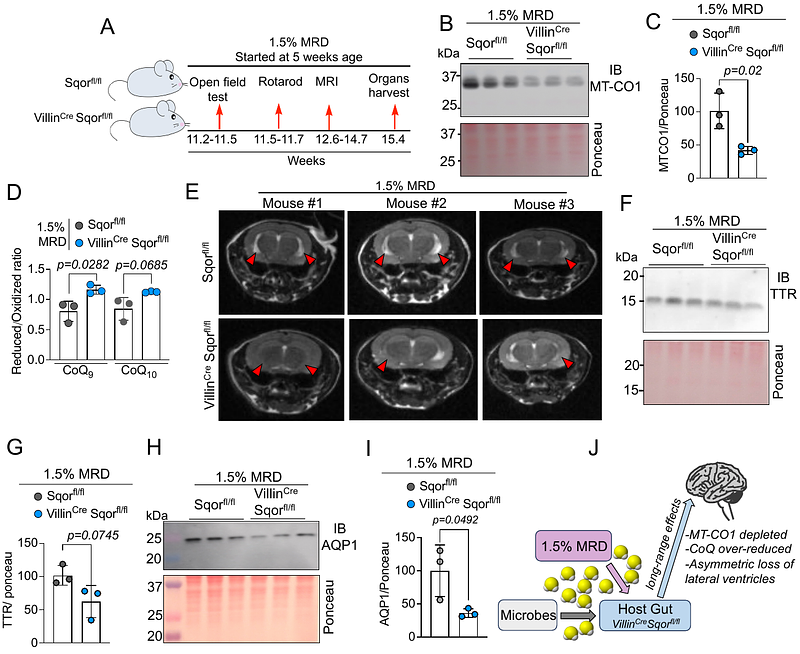Gut sulfide metabolism modulates behavior and brain bioenergetics

Gut sulfide metabolism modulates behavior and brain bioenergetics
Kumar, R.; Sykes, D. J.; Band, V. I.; Schaller, M. L.; Patel, R.; Vitvitsky, V.; Sajjakulnukit, P.; Singhal, R.; Wong, H. K. A.; Hourigan, S. K.; Ichinose, F.; Lyssiotis, C. A.; Shah, Y. M.; Banerjee, R.
AbstractThe host-microbiome interface is rich in metabolite exchanges and exquisitely sensitive to diet. Hydrogen sulfide (H2S) is present at high concentrations at this interface, and is a product of both microbial and host metabolism. The mitochondrial enzyme, sulfide quinone oxidoreductase (SQOR), couples H2S detoxification to oxidative phosphorylation; its inherited deficiency presents as Leigh disease. Since an estimated two thirds of systemic H2S metabolism originates in gut, it raises questions as to whether impaired sulfide clearance in this compartment contributes to disease, and whether it can be modulated by dietary sulfur content. In this study, we report that SQOR deficiency confined to murine intestinal epithelial cells, perturbs colon bioenergetics that is reversed by antibiotics, establishing a significant local contribution of microbial H2S to host physiology. We also find that a 2.5-fold higher methionine intake, mimicking the difference between animal and plant proteins, synergized with intestinal SQOR deficiency to adversely impact colon architecture and alter microbiome composition. In serum, increased thiosulfate, a biomarker of H2S oxidation, revealed that intestinal SQOR deficiency combined with high dietary methionine, affects sulfide metabolism globally and perturbs energy metabolism as indicated by higher ketone bodies. The mice exhibited lower exploratory locomotor activity while brain MRI revealed an atypical reduction in ventricular volume, which was associated with lower aquaporin 1 that is important for cerebrospinal fluid secretion. Our study reveals the dynamic interaction between dietary sulfur intake and sulfide metabolism at the host-microbe interface, impacting gut health, and the potential for lower dietary methionine intake to modulate pathology.